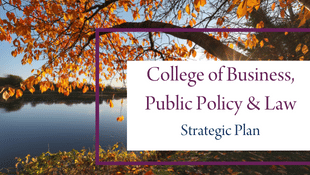-
Courses

Courses
Choosing a course is one of the most important decisions you'll ever make! View our courses and see what our students and lecturers have to say about the courses you are interested in at the links below.
-
University Life

University Life
Each year more than 4,000 choose University of Galway as their University of choice. Find out what life at University of Galway is all about here.
-
About University of Galway

About University of Galway
Since 1845, University of Galway has been sharing the highest quality teaching and research with Ireland and the world. Find out what makes our University so special – from our distinguished history to the latest news and campus developments.
-
Colleges & Schools

Colleges & Schools
University of Galway has earned international recognition as a research-led university with a commitment to top quality teaching across a range of key areas of expertise.
-
Research & Innovation

Research & Innovation
University of Galway’s vibrant research community take on some of the most pressing challenges of our times.
-
Business & Industry

Guiding Breakthrough Research at University of Galway
We explore and facilitate commercial opportunities for the research community at University of Galway, as well as facilitating industry partnership.
-
Alumni & Friends

Alumni & Friends
There are 128,000 University of Galway alumni worldwide. Stay connected to your alumni community! Join our social networks and update your details online.
-
Community Engagement

Community Engagement
At University of Galway, we believe that the best learning takes place when you apply what you learn in a real world context. That's why many of our courses include work placements or community projects.
Tab 1 Content
Dr. Mulgrew’s new edited collection published - Research Handbook on the Punishment of Atrocity Crime
Dr Róisín Mulgrew’s new book, the Research Handbook on the Punishment of Atrocity has been published by Elgar Publishing.
This timely collection was co-edited with Professor Mikkel J Christensen of the University of Copenhagen.
Their chapter, Researching the Punishment of Atrocity Crime is available open access.
This Research Handbook examines the punishment of atrocity crime and presents a wide-ranging critique of post-conviction law, policy and practice. With a team of expert contributing authors, Róisín Mulgrew and Mikkel Jarle Christensen provide insights into the impact and implications of punishment models, strategies and frameworks.
Taking a multidisciplinary approach, chapters analyse the work of international criminal courts and tribunals, as well as domestic criminal, military and traditional justice systems. Authors utilise a wide range of research methods and tools to bring the impact of different penalties, sentencing policies and sentence enforcement models to light. They also outline the implications of release and post-release strategies for a variety of stakeholders, such as accused persons, courts, states and wider society. Individually and collectively, these contributions add to a growing body of literature on how punishment can prevent and address atrocity crime, while also challenging contemporary assumptions about systems of punishment.
The Research Handbook on the Punishment of Atrocity Crimes is an essential read for academics, researchers and students in criminal law and justice, public international law and human rights. It is also an indispensable resource for lawyers, judges, policy-makers and practitioners working in the field of atrocity crime.
Critical Acclaim for the book…
‘This Research Handbook takes up a wide variety of themes and an amazingly broad, multidimensional and inter- and multidisciplinary approach to both punishing and sentencing atrocity crimes. It is informative, insightful and challenging. A “must-read” for those interested in the field of international criminal justice and atrocity crimes.’
– Alette Smeulers, University of Groningen, the Netherlands
‘The Research Handbook on the Punishment of Atrocity Crimes offers an unusually comprehensive take on a neglected area of research. Rich in conceptual, empirical, and methodological approaches, this is a “must-read” for anyone concerned with punishment and justice after atrocity crimes.’
– Kjersti Lohne, University of Oslo, Norway
‘This Handbook offers a second-generation view of research regarding the punishment of atrocity crimes. It constellates new voices, connects seasoned perspectives, and nimbly traverses boundaries whether jurisdictional or conceptual. The editors offer an indispensable contribution to the literature.’
– Mark Drumbl, Washington and Lee University, School of Law, US
















